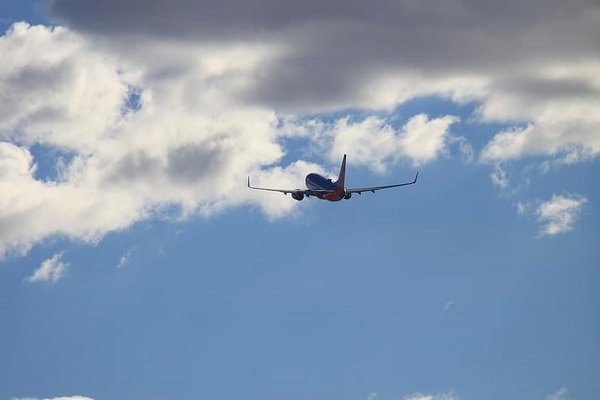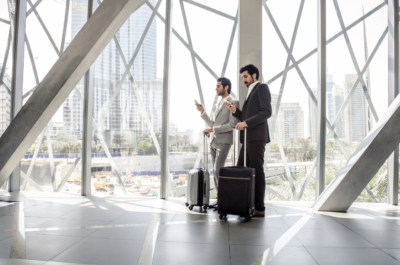CarTrawler-sponsored research determines face masks required by almost all airlines, with widespread adoption of electrostatic disinfection, temperature checks, and distribution of hand sanitizer.
DUBLIN, IRELAND & SHOREWOOD, WISCONSIN – The world’s leading airlines are actively engaged in the process of boosting traveler confidence during the pandemic. The following describes the key confidence-building features identified at airline websites during June 2020:
– Spray and wipe disinfecting: The passenger cabins of the world’s airline fleet should be sparkling clean after all the spray-wipe-repeat activity promised by airlines. Without exception, carriers describe a cleaning regimen occurring before flights and becoming more robust during overnight stops. AirAsia helpfully lists the names of the three chemicals used. Emirates adds an extra crew member on longer flights dedicated to cleaning lavatories.
– Electrostatic antiviral spraying: This method, widely used by US-based airlines, dispenses disinfectant with a mild positive electrical charge. The small particles are then attracted to cabin surfaces as these have a natural neutral or negative charge. It’s a very effective method to coat every surface such as overhead bins, seats, air nozzles and light controls, and tray tables.
– Face covering required: All airlines in the survey, with the exception of Qantas, require passengers to wear face coverings. Air France, as a result of home government regulation, requires passengers to upgrade to surgical masks.
– Care kits for travelers: Items provided free of charge to passengers may include some or all of these elements: face mask, sanitizing wipes, and sanitizing liquid.
– Temperature check required: It’s difficult to discern from airline websites if these checks are administered by an airline (such as Air Canada and Frontier) or by airport authorities, especially at major hub locations.
“It’s hugely encouraging to see the proactive and sensible measures airlines are taking to prioritise passenger health and safety,” said Aileen McCormack, Chief Commercial Officer at CarTrawler, speaking in Dublin. “The travel industry has been hit hard, but these measures signal positive momentum and will provide consumers with the confidence and peace of mind they’re seeking.”
The review of COVID-19 policies also revealed additional confidence-building measures. The following are listed by two-letter code in the right column of the table:
– Cabin baggage restrictions (CB): Roll-on baggage and other large pieces add extra time in the aisle for passengers as they load their overhead bin. Airlines restrict carry-on bags to create a safer and less congested boarding and deplaning process.
– Hand sanitizer (HS): Clean hands are something that everyone can agree upon as a healthy habit. The table reflects airlines that indicate the availability of hand sanitizer in gate areas and on aircraft. Gate area supplies might be courtesy of airport operators.
– Middle seat kept empty (MS): Having an empty middle seat feels safer, but in reality the safety benefit is likely negligible. This appears to be a US trend and the courtesy will be short-lived as aircraft loads increase.
– Protective equipment for cabin crew (PE): Beyond the provision of a higher quality mask, some airlines provide cabin crew with clear face shields or goggles, and plastic blouses/aprons. This provides protection for passengers, and especially for cabin crew who encounter hundreds of passengers during a work day.
– Spraying or fogging disinfectant (SD): Videos developed by airlines display workers in protective body suits spraying disinfectant in aircraft cabins between flights or during overnight stops. The disinfectant lands on surfaces, such as fabric seating, armrests, and carpets, and provides long term protection.
Depending upon the type of chemical used, some airlines disclose viral protection may last 30 days between application. If an airline did not disclose it uses electrostatic methods (or this was not obvious from the video) the method was listed as spraying or fogging.
The table provides a compilation of prevalent methods used by airlines to increase traveler confidence during the pandemic. Plenty of additional examples were revealed during the review of airline websites. Singapore promises to launder all cabin supplies, such as headrest covers and blankets, at high temperature after every flight. Turkish says it will avoid the use of bus transfers for departures and arrivals. The airline also describes a structured arrival process which deplanes 10 passengers at a time with 2-minute waiting intervals to reduce aisle congestion. On longer domestic flights, United’s cabin crew distributes an “all-in-one” snack bag that includes a wrapped sanitizer wipe, 8.5-ounce bottled water, Stroopwafel, and package of pretzels.
Not every airline was found to be forthcoming with a description of its confidence building procedures. While change and cancel fee waiver details were easily found, all too often information regarding COVID-19 safety procedures was sometimes difficult to find or offered insufficient detail. Air Canada was found to be the best with good explanatory videos and a helpful step-by-step guide for preparing for travel. Singapore offers a very thorough online e-brochure for information on health and safety issues.
The scale of effort by the world’s airlines to build traveler confidence during the pandemic is impressive, and often exceeds regulatory requirements. It’s the cabin crew who ultimately deliver the promise of traveler safety and comfort. Let's hope travelers all treat cabin crew with kindness and respect, even if they feel pandemic-related measures are inconvenient or intrusive. After all, the primary concern of cabin crew has always been the safety of their passengers, even at the risk of their own lives.
Tatiana is the news coordinator for TravelDailyNews Media Network (traveldailynews.gr, traveldailynews.com and traveldailynews.asia). Her role includes monitoring the hundreds of news sources of TravelDailyNews Media Network and skimming the most important according to our strategy.
She holds a Bachelor's degree in Communication & Mass Media from Panteion University of Political & Social Studies of Athens and she has been editor and editor-in-chief in various economic magazines and newspapers.













































































































































































